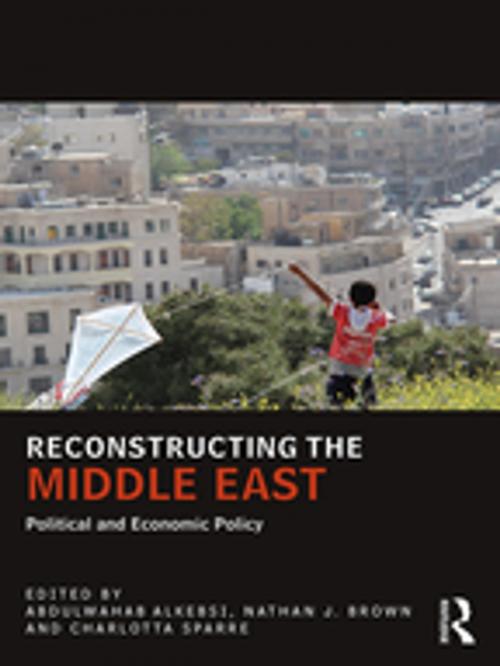Reconstructing the Middle East
Political and Economic Policy
Nonfiction, Social & Cultural Studies, Political Science, International, Social Science| Author: | ISBN: | 9781317214311 | |
| Publisher: | Taylor and Francis | Publication: | February 24, 2017 |
| Imprint: | Routledge | Language: | English |
| Author: | |
| ISBN: | 9781317214311 |
| Publisher: | Taylor and Francis |
| Publication: | February 24, 2017 |
| Imprint: | Routledge |
| Language: | English |
It is clear by now that the label ‘Arab Spring’ has proven too simplistic to describe the uprisings that upended the political order of the Arab world in late 2010. Brutal crackdowns and civil conflict in Syria, Libya, and Yemen dashed the hopes that peaceful democratic revolutions would sweep the region. In other countries, the departure of authoritarian leaders led to many false starts without producing democratic conclusions. Societies that had appeared united in opposition suddenly seemed fractious. Youth were once again banished to the political margins.
‘Reconstructing the Middle East’ examines the changes that happened within the region from 2010 and the long-term challenges and opportunities they present. Featuring the work of authors with a diversity of perspectives, most of whom hail from the region, it addresses key issues of political, economic and societal changes, the role of young people and of the international community. In addition, the book deals with the questions of both political and economic reform, and the intertwined nature of the two. Political reform that allows greater participation will fail to quell frustration if Arabs continue to feel that their job prospects are bleak. Similarly, Arabs will not accept economic reform that restores growth but continues to fence off the political sphere.
This book offers a unique perspective on the uprisings by focusing on specific issue areas where change is needed, and offering a roadmap for the long road towards state building and new social contracts based on political inclusion, respect for pluralism, and sustained economic growth. As such, it will be a valuable resource for students and scholars of Middle East Politics, as well as those with an interest in the Arab Spring.
It is clear by now that the label ‘Arab Spring’ has proven too simplistic to describe the uprisings that upended the political order of the Arab world in late 2010. Brutal crackdowns and civil conflict in Syria, Libya, and Yemen dashed the hopes that peaceful democratic revolutions would sweep the region. In other countries, the departure of authoritarian leaders led to many false starts without producing democratic conclusions. Societies that had appeared united in opposition suddenly seemed fractious. Youth were once again banished to the political margins.
‘Reconstructing the Middle East’ examines the changes that happened within the region from 2010 and the long-term challenges and opportunities they present. Featuring the work of authors with a diversity of perspectives, most of whom hail from the region, it addresses key issues of political, economic and societal changes, the role of young people and of the international community. In addition, the book deals with the questions of both political and economic reform, and the intertwined nature of the two. Political reform that allows greater participation will fail to quell frustration if Arabs continue to feel that their job prospects are bleak. Similarly, Arabs will not accept economic reform that restores growth but continues to fence off the political sphere.
This book offers a unique perspective on the uprisings by focusing on specific issue areas where change is needed, and offering a roadmap for the long road towards state building and new social contracts based on political inclusion, respect for pluralism, and sustained economic growth. As such, it will be a valuable resource for students and scholars of Middle East Politics, as well as those with an interest in the Arab Spring.















